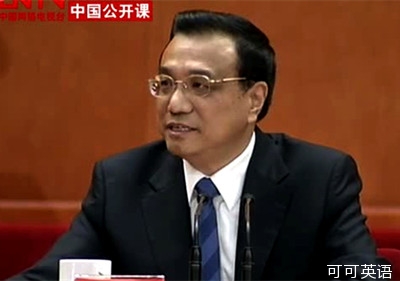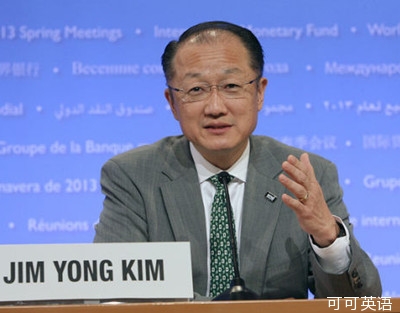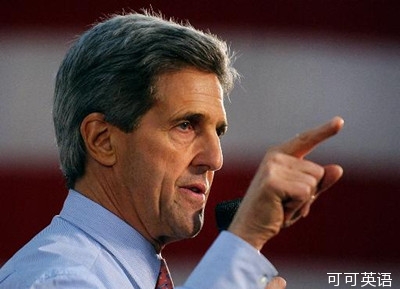A mixed score card
好壞參半的成績單
The efforts in governance reform since the crisis can be broadly split into three categories—coordinating macroeconomic policies, fixing global financial regulation, and strengthening regional and global safety nets.
危機(jī)以來的治理改革工作大致可分為三類:協(xié)調(diào)宏觀經(jīng)濟(jì)政策、修復(fù)全球金融監(jiān)管和加強(qiáng)區(qū)域和全球安全網(wǎng)。
First, macroeconomic policy coordination. Although not perfect, such coordination was particularly strong at the initial stage of the crisis. For instance, six major central banks announced, in an unprecedented move, a coordinated cut in policy rates in October 2008 to ease global economic conditions. The U.S Federal Reserve and 14 different monetary authorities established temporary U.S. currency swap arrangements to mitigate dollar shortages in short-term funding markets. And the first ever G20 Leaders’ Summit was convened in November 2008 and led to a commitment to coordinated fiscal stimulus and a pledge to refrain from protectionism.
首先,宏觀經(jīng)濟(jì)政策協(xié)調(diào)。雖然不盡完善,但這種協(xié)調(diào)在危機(jī)初始階段特別有力。例如,六大央行以前所未有的方式宣布將在2008年協(xié)調(diào)降息,以紓緩全球經(jīng)濟(jì)。美國聯(lián)邦儲備委員會和14個貨幣當(dāng)局設(shè)立了臨時美元貨幣互換安排,以緩解短期融資市場上的美元短缺。2008年11月,20國集團(tuán)領(lǐng)導(dǎo)人召開首次峰會,承諾協(xié)調(diào)實(shí)施財政刺激,杜絕保護(hù)主義。
These massive efforts meant that, instead of another Great Depression, we got the Great Recession, which actually is a significant achievement, given the possible counterfactuals. However, more recently, the momentum for policy coordination has slowed, as the focus has shifted from preventing a calamity to avoiding future crises and supporting the nascent recovery. Some have argued that while the G20 was good in war, it might not be able to deliver as much in peace time.
這些大規(guī)模努力的結(jié)果是,沒有再次發(fā)生大蕭條,而是出現(xiàn)大衰退,這實(shí)際上是一個巨大成就,因?yàn)閷?shí)際結(jié)果可能會更糟糕。然而,最近,政策協(xié)調(diào)的勢頭有所減緩,因?yàn)橹攸c(diǎn)已經(jīng)從預(yù)防災(zāi)難轉(zhuǎn)變?yōu)楸苊馕磥戆l(fā)生危機(jī)和支持復(fù)蘇。有人認(rèn)為,20國集團(tuán)可以在戰(zhàn)爭時期較好合作,但在和平時期則不盡然。
And the task is far from over.
任務(wù)還遠(yuǎn)未結(jié)束。
One challenge faced by the international community going forward will be to continue the dialogue on unwinding unconventional monetary policies and managing potential spillover effects as well as managing our way out of the debt burdens accumulated during the crisis.
國際社會未來面臨的一大挑戰(zhàn)是繼續(xù)就退出非常規(guī)貨幣政策、管理潛在的溢出效應(yīng)和處理危機(jī)期間累積的債務(wù)負(fù)擔(dān)進(jìn)行對話。
Second, global financial regulation. To address the origins of the crisis, G20 members committed to a fundamental overhaul of global financial regulation, with the intention of promoting a more transparent, safe, and resilient global financial system.
第二,全球金融監(jiān)管。為了解決危機(jī)的根源,20國集團(tuán)成員國承諾徹底改革全球金融監(jiān)管,讓全球金融體系更透明、更安全和更具抵御能力。
Most notably, the Financial Stability Board (FSB) was created in 2009 with a mandate to develop and promote effective financial regulation. Significant progress has been made in terms of strengthening system-wide oversight, increasing capital and liquidity buffers, promoting the exchange of financial information, and implementing macroprudential policy frameworks. Efforts are also underway to facilitate cross-border resolution.
最值得注意的是,2009年創(chuàng)立了金融穩(wěn)定委員會,其任務(wù)是制定和推廣有效的金融監(jiān)管。在加強(qiáng)全系統(tǒng)監(jiān)督、增加資本和流動性緩沖、促進(jìn)金融信息交流、實(shí)施宏觀審慎政策框架方面取得了顯著進(jìn)展。還在努力推動跨境破產(chǎn)解決工作。
Yet major challenges remain, such as ending the too-big-to-fail problem, reforming shadow banking, and making derivatives markets safer. In the euro area, recent policy actions have helped ease market stress, but more still needs to be done to reverse financial fragmentation and move towards a full banking union.
然而,仍存在重大挑戰(zhàn),如解決太大不能倒閉的問題、改革影子銀行,并讓衍生產(chǎn)品市場更加安全。在歐元區(qū),最近的政策行動幫助緩解了市場壓力,但還需去除金融分割,實(shí)現(xiàn)全面的銀行聯(lián)盟。
Third, strengthening regional and global safety nets. To mitigate the impact of the crisis, countries came together to strengthen the global financial safety net, including by trebling the size of the IMF’s resources and increasing the allocation of SDRs. In Europe, the financial architecture of the euro area was enhanced through the creation of the European Stability Mechanism (ESM) and the ECB’s Outright Monetary Transactions (OMT) framework. In other parts of the world, commitments to regional financing arrangements, such as the Chang Mai Initiative and the Eurasian Economic Community Anti-crisis Fund, were reinforced.
第三,加強(qiáng)區(qū)域和全球安全網(wǎng)。為減輕危機(jī)的影響,各國聯(lián)合加強(qiáng)全球金融安全網(wǎng),包括讓基金組織的資源規(guī)模增加兩倍和提高特別提款權(quán)分配。在歐洲,通過建立歐洲穩(wěn)定機(jī)制和歐洲央行的直接貨幣交易框架,歐元區(qū)的金融架構(gòu)加強(qiáng)。在世界其他地區(qū),對區(qū)域性融資安排,如“清邁倡議”和“歐亞經(jīng)濟(jì)共同體反危機(jī)基金”的承諾都得到增強(qiáng)。
However, progress has been uneven in other areas. For example, in the case of the IMF, the agreement reached in 2010 on important quota and governance reforms that would further increase the voice and representation of emerging market and developing economies has not yet been implemented. While two of three required conditions have been fulfilled, further support is needed to meet the final condition that will allow the reform to take effect.
然而,其他領(lǐng)域的進(jìn)展不均平衡。例如,就基金組織而言,2010年就重要的份額和治理改革達(dá)成的協(xié)議尚未實(shí)施,這些改革將進(jìn)一步提高新興市場和發(fā)展中經(jīng)濟(jì)體的發(fā)言權(quán)和代表性。雖然三個必要條件中的兩項(xiàng)已得到滿足,要使改革生效,還需得到進(jìn)一步支持,以滿足最后一個條件。
If we put all this together, the report card on global governance reform since the crisis is somewhat mixed. Policymakers across the globe need to keep the momentum alive and seize the opportunity to advance governance reform while memories of the crisis and the sense of urgency remain fresh. Indeed, there is a real danger that the window of opportunity for addressing some of the most challenging global issues might soon be closing. How can this trend be reversed and important reforms finalized? To answer this question, it is helpful to look at the different types of solutions that have evolved as means to deliver global public goods.
如果我們把這一切綜合在一起,危機(jī)之后的全球治理改革成績單好壞參半。世界各地的政策制定者需要保持勢頭,抓住機(jī)遇,趁對危機(jī)尚記憶猶新和改革迫切感尚存,推進(jìn)治理改革。事實(shí)上,解決最具挑戰(zhàn)性的全球性問題的窗口可能很快就會消失,這種危險是存在的。如何扭轉(zhuǎn)此趨勢并落實(shí)重要改革?要回答這個問題,讓我們看看已經(jīng)演變成提供全球公共產(chǎn)品手段的各種不同解決方案,也許會有所助益。
Soft versus hard policy coordination
軟和硬政策協(xié)調(diào)
In what direction is the global system of economic governance and policy coordination evolving? To answer this question, I find it instructive to differentiate between “hard” and “soft” governance and policy coordination.
經(jīng)濟(jì)治理和政策協(xié)調(diào)的全球體系在朝哪個方向發(fā)展?要回答這個問題,我覺得區(qū)分 “硬”和“軟”的治理及政策協(xié)調(diào)會有幫助。
“Hard” policy coordination is typified by quid pro quos in policies with a focus on specific and tangible outcomes. Examples include the two initial G20 Leaders’ Summits that took place in the immediate aftermath of the crisis, and resulted in the coordinated fiscal policy response I mentioned earlier and the creation of the FSB.
典型的“硬”政策協(xié)調(diào)是通過采取政策,以獲得具體和切實(shí)的成果。例子包括20國集團(tuán)領(lǐng)導(dǎo)人在危機(jī)之后立即召開的兩次峰會,成果是前面所提到的協(xié)調(diào)的財政政策和創(chuàng)建FSB。
In contrast, “softer” forms of coordination are more process-based without a priori expectation of substantial outcomes or agreements. They are designed to facilitate the exchange of views and information sharing on an ongoing basis, such as the regular discussions among central bankers at the Bank for International Settlements (BIS).
相反,“軟”協(xié)調(diào)更加注重于程序,對實(shí)質(zhì)結(jié)果或協(xié)議沒有先驗(yàn)期望。目的是持續(xù)基礎(chǔ)進(jìn)意見和信息共享,如央行在國際清算定期舉行討論。
Soft and hard policy coordination can complement each other. For instance, soft arrangements can keep the policy dialogue alive during quiet times, and provide a framework for harder cooperation, and even full-fledged policy coordination, during crises.
軟的和硬的政策協(xié)調(diào)可以互為補(bǔ)充。例如,軟安排可以在和平時期保持政策對話,并為硬合作提供合作框架,甚至是在危機(jī)期間提供全面的政策協(xié)調(diào)。


















